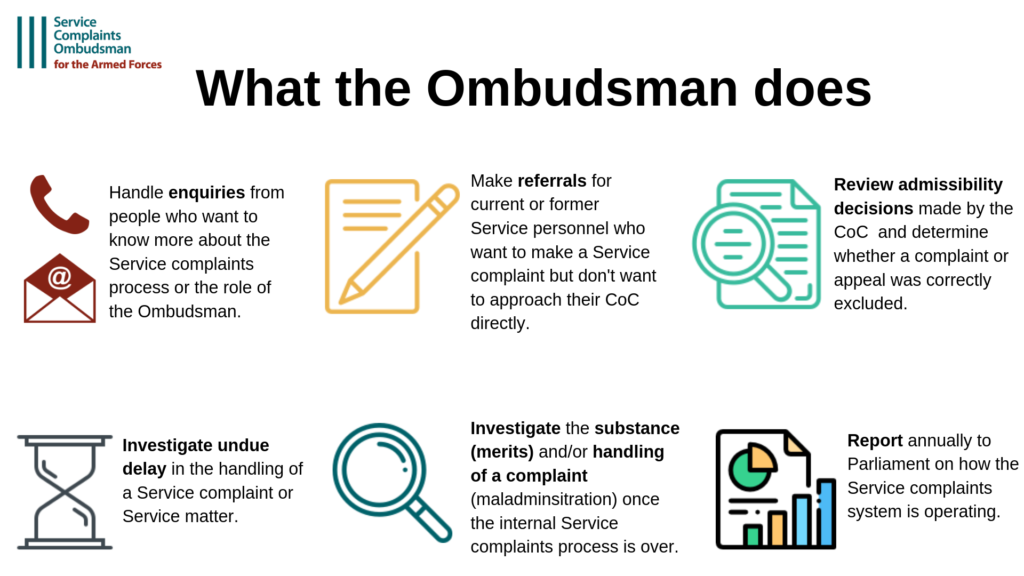When we ask people how we can improve our service, they often say by providing advice. However, this is something that we cannot do – we can only provide information. Read on to find out why…….

If you look at the list of things we do at the office of the Service Complaints Ombudsman, you might think that there is something missing. We handle enquiries, make referrals and conduct investigations, but we don’t provide advice. We are often asked why that is. Isn’t providing information the same thing as providing advice?
The short answer is: no. Although the words are often used by people interchangeably, they are actually two completely different things. We can provide information, but providing advice is outside our remit.
The longer answer is this:
When we provide information, we are giving people facts about how the complaint process works and how the Ombudsman’s powers work.

People who contact our office take those facts and make a decision about what course of action they want to take. Do they want to make a Service complaint? Do they want to ask the Ombudsman to investigate? etc.
If we were providing advice, we would be telling people what course of action they should take.

If we did that, we would no longer be impartial.
The advice we are often asked to give generally falls into one of two categories:
1. Is this a decision I should make?
“Should I make a Service complaint?”
“Should I ask the Ombudsman to investigate?”
These aren’t the type of questions that we can answer; they are for you to decide.
When someone makes a complaint, they need to have ownership of it. They need to make it because they think that is the right thing to do and what they want to do, not what someone else thinks they should do. The complaints process isn’t always easy. It can be stressful waiting for an outcome or having to talk about upsetting incidents that have occurred. If someone feels that they weren’t entirely in control of the decision to make a complaint, it can make it even more stressful.
If we were to give an opinion about whether someone should make a complaint or an application to our office, they may feel forced into that course of action, or assume it will lead to their complaint being upheld – something we can never guarantee will happen.
2. Will my complaint/application be accepted?
“Do I have a valid complaint?”
“Will my application to the Ombudsman be accepted for investigation?”
Again, we can’t answer these questions. They are decisions that will be made by Specified Officers/Decision Bodies in the internal system, and our investigators and the Ombudsman in our office. Those decisions will be made based on careful consideration of the specific circumstances of each case and what the law and local policy states.
However, all of this doesn’t mean that you can’t talk to someone if you need help deciding what to do, it just means that it can’t be us giving you the advice.
Our Enquiries and Referrals Team, who are the first point of contact for anyone who comes to our office don’t just provide information to current and former Service personnel. Family members, friends, support workers – anyone helping you – can phone or email to ask for information on how the process works. Once they have the facts, you can talk it through together and then you can make the decision that is best for you.
But, whatever you decide, we always aim to provide the most current and accessible information on our website, and if you need more than that you can phone 020 7877 3450 or email contact@scoaf.org.uk